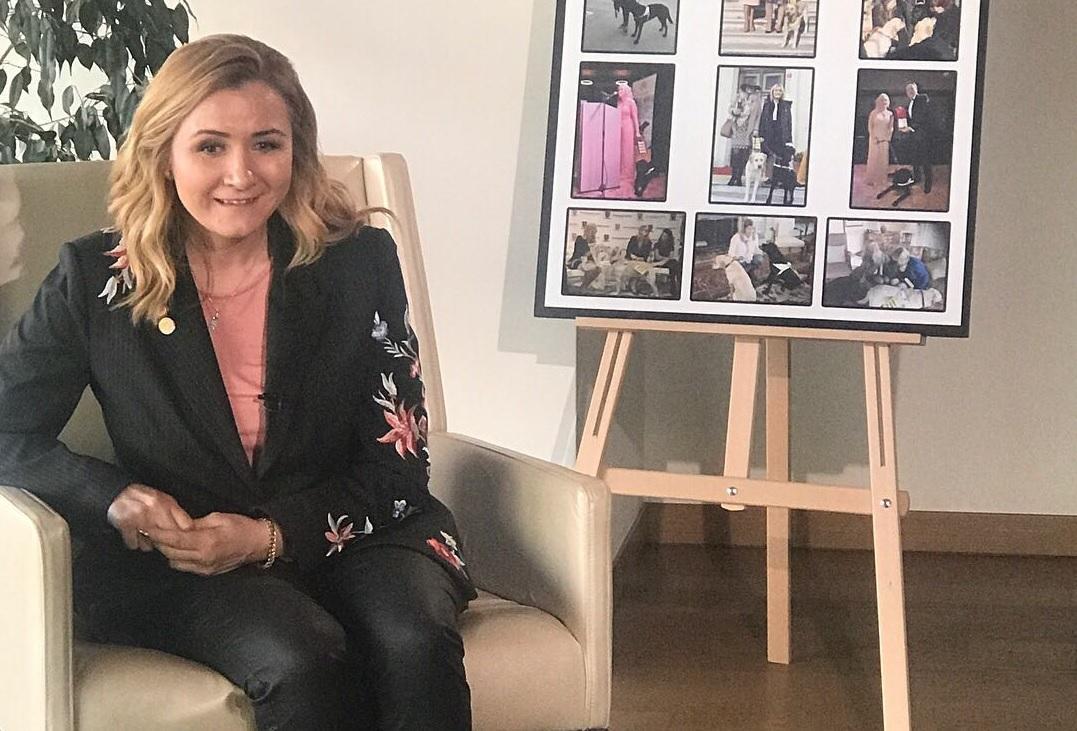
As the president of Turkey’s Guide Dog Association, I often need to travel locally and internationally to promote our work. I feel blessed to have the opportunity to visit these places and connect to the people who live there. As a visually impaired traveler, visiting an unfamiliar place can cause me some anxiety if it does not have the facilities to accommodate me. People assist me when I need it, but my ability to travel independently is often restricted.
But throughout my life I have witnessed improvement in infrastructure for the visually impaired throughout Europe and especially Turkey, which has been empowering. My role as a visually impaired traveler has also had a new dynamic since my lovely Kara, Turkey’s first native-born guide dog, became a part of my life one-and-a-half years ago.
Visually impaired people naturally have a strong bond with their guide dogs as they are a constant source of companionship and support. My relationship with Kara is no exception. Guide dogs are also a great advocate for disabled rights because they are welcomed into businesses and transportation services where they would normally be out of place, reminding us of the need to accommodate all members of society despite their abilities.
In travel, Kara offers me the same invaluable support that she does at home but because she is also a dog I have to consider the places we stay. There are international standards for hospitality services with regard to guide dogs, but this doesn’t guarantee that every hotel will meet that standard. When making a reservation at a hotel, I inform them that I will have a guide dog, but there can be a failure to communicate this information, so the receptionist will be unprepared to meet my specific needs on arrival. This usually is not the case, but there is still the potential for delays and frustration as I again explain myself to staff.
In light of this situation, Kara and I recently took a holiday to İzmir, where we wanted to unwind in the warm sun and cool breeze of the local seaside. It was a much-needed break from my demanding legal work, but I found myself asking the usual anxious questions ahead of the trip: “How will people react at the beach?” and “Will the hotel staff be ready for me?” Through my work in the Guide Dog Association, I have received generous support from the Marriott International Hotel group and they’ve often professed their commitment to meeting the needs of disabled guests. Knowing this has given me more confidence in this part of my travel preparations because staff has been trained to care for disabled guests.
When I arrived at the Sheraton Çeşme, part of the Marriott International Hotel Group, I immediately realized their professionalism. The staff kindly greeted both of us without unnecessary questions. Neither did they pet or otherwise disturb Kara, which would distract her from duties as a guide. After checking in and unpacking, Kara and I headed for their private beach, where I went for a swim. Even here, the staff knew exactly what we needed to have a relaxing time. They were able to warn me of any obstacles, such as large rocks or waves, as I was swimming and they stayed close to Kara, making sure she was calm while I enjoyed the seaside.
Indeed, I had this experience several times during my stay at the Sheraton Çeşme and met with other disabled or elderly people who received the same level of service. Beyond being a gorgeous holiday, it was a further sign of the progress we’ve made in Turkey towards meeting the needs of everyone. Now more than ever, I can confidently recommend Turkey as a travel destination for foreign friends who also have guide dogs. We received nothing but love and support from those we’ve met on our travels and foreigners coming here can easily find a comfortable place to stay without being made to feel disabled.